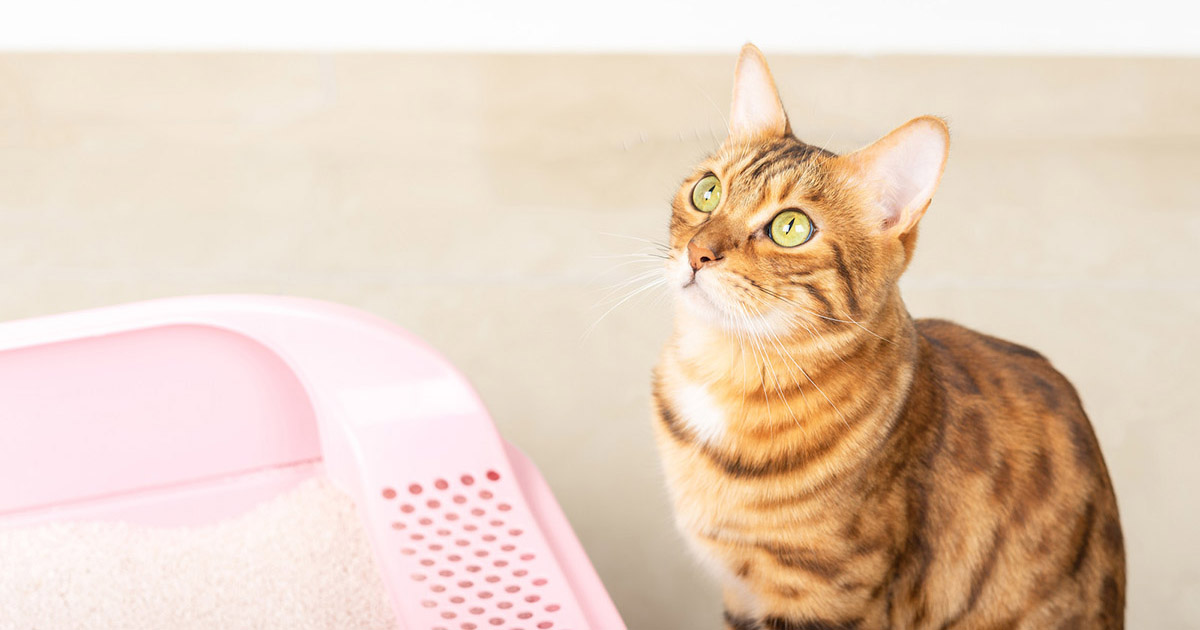Prevent Clogs and Damage: Never Flush Cat Poop Down Your Toilet - Professional Recommendations
Prevent Clogs and Damage: Never Flush Cat Poop Down Your Toilet - Professional Recommendations
Blog Article
Every person may have his or her own perception when it comes to Don’t flush cat feces down the toilet.

Intro
As pet cat proprietors, it's essential to be mindful of exactly how we take care of our feline friends' waste. While it might seem practical to purge pet cat poop down the bathroom, this technique can have destructive consequences for both the environment and human health.
Ecological Impact
Purging feline poop introduces damaging microorganisms and bloodsuckers into the water supply, positioning a considerable danger to water communities. These pollutants can adversely affect aquatic life and concession water high quality.
Health and wellness Risks
In addition to environmental issues, flushing cat waste can also pose health risks to human beings. Cat feces might have Toxoplasma gondii, a bloodsucker that can trigger toxoplasmosis-- a potentially serious health problem, specifically for expectant ladies and individuals with weakened body immune systems.
Alternatives to Flushing
Luckily, there are much safer and a lot more accountable ways to throw away feline poop. Consider the following choices:
1. Scoop and Dispose in Trash
One of the most common method of disposing of feline poop is to scoop it right into a naturally degradable bag and throw it in the garbage. Make sure to use a dedicated clutter scoop and deal with the waste without delay.
2. Usage Biodegradable Litter
Go with naturally degradable pet cat clutter made from products such as corn or wheat. These litters are eco-friendly and can be safely taken care of in the trash.
3. Hide in the Yard
If you have a lawn, think about hiding feline waste in a marked location far from vegetable yards and water sources. Make certain to dig deep sufficient to stop contamination of groundwater.
4. Set Up a Pet Waste Disposal System
Buy a family pet garbage disposal system particularly designed for feline waste. These systems make use of enzymes to break down the waste, decreasing smell and environmental effect.
Conclusion
Accountable animal possession extends past providing food and sanctuary-- it additionally involves proper waste administration. By avoiding flushing feline poop down the commode and opting for alternate disposal approaches, we can minimize our ecological impact and safeguard human wellness.
Why You Should Never Flush Cat Poop Down the Toilet
A rose by any other name might smell as sweet, but not all poop is created equal. Toilets, and our sewage systems, are designed for human excrement, not animal waste. It might seem like it couldn’t hurt to toss cat feces into the loo, but it’s not a good idea to flush cat poop in the toilet.
First and foremost, assuming your cat uses a litter box, any waste is going to have litter on it. And even the smallest amount of litter can wreak havoc on plumbing.
Over time, small amounts build up, filling up your septic system. Most litter sold today is clumping; it is made from a type of clay that hardens when it gets wet. Ever tried to scrape old clumps from the bottom of a litter box? You know just how cement-hard it can get!
Now imagine just a small clump of that stuck in your pipes. A simple de-clogger like Drano isn’t going to cut it. And that means it’s going to cost you big time to fix it.
Parasitic Contamination
Believe it or not, your healthy kitty may be harboring a nasty parasite. Only cats excrete Toxoplasma in their feces. Yet it rarely causes serious health issues in the cats that are infected. Most people will be fine too if infected. Only pregnant women and people with compromised immune systems are at risk. (If you’ve ever heard how women who are expecting are excused from litter cleaning duty, Toxoplasma is why.)
But other animals may have a problem if infected with the parasite. And human water treatment systems aren’t designed to handle it. As a result, the systems don’t remove the parasite before discharging wastewater into local waterways. Fish, shellfish, and other marine life — otters in particular — are susceptible to toxoplasma. If exposed, most will end up with brain damage and many will die.
Depending on the species of fish, they may end up on someone’s fish hook and, ultimately on someone’s dinner plate. If that someone has a chronic illness, they’re at risk.
Skip the Toilet Training
We know there are folks out there who like to toilet train their cats. And we give them props, it takes a lot of work. But thanks to the toxoplasma, it’s not a good idea.

I found that post on How to Dispose of Cat Poop and Litter Without Plastic Bags when doing a search on the web. In case you enjoyed reading our blog post if you please be sure to share it. Thank you so much for your time invested reading it.
Details Here Report this page